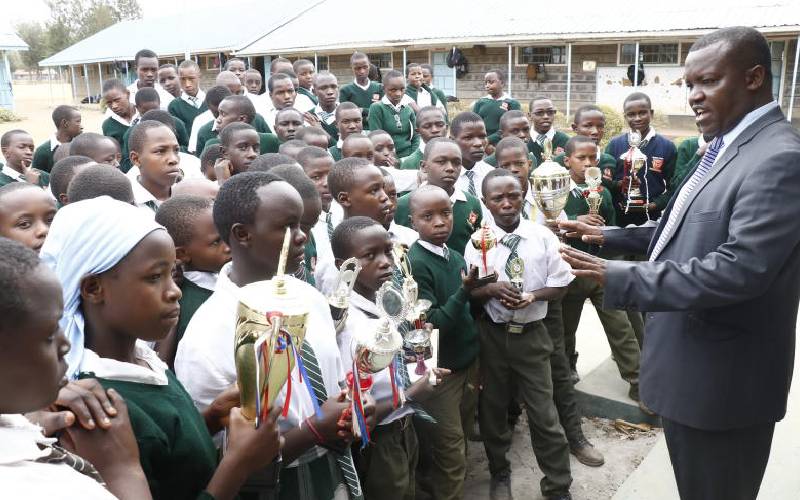×
The Standard e-Paper
Join Thousands Daily

Keriko Secondary School Head Teacher Daniel Mwariri at the school on March 25, 2019. [Harun Wathari, Standard]
The sun burns with a hellish fervour as winds frantically whirl up the dust from the bare ground at Keriko Day Secondary School in Njoro.